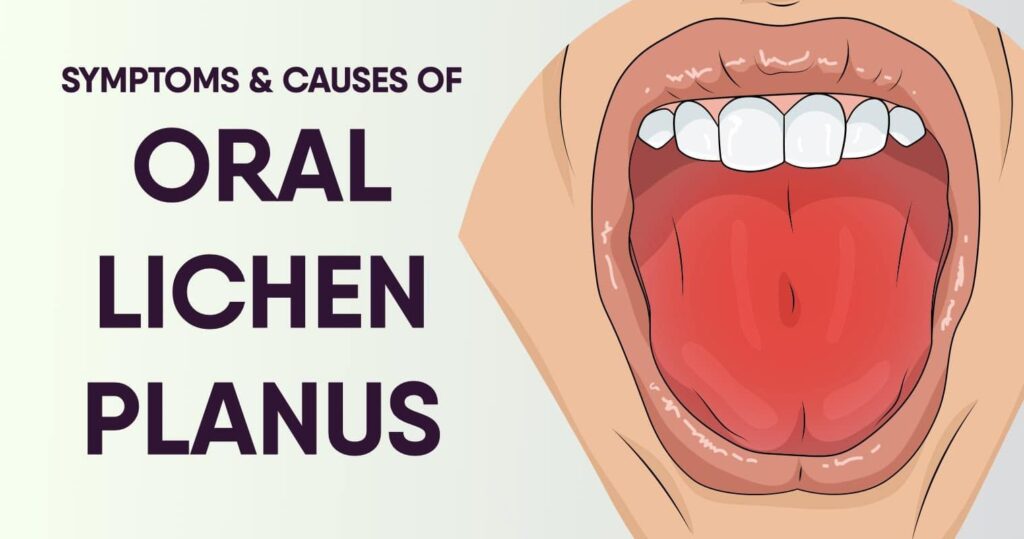Oral Lichen Planus
Oral Lichen Planus

What is Oral lichen planus and how is it caused?
Lichen planus is a skin rash triggered by the immune system usually characterized by itchy polygon-shaped reddish-purple skin lesions on the wrists, lower back, and ankles. It may also present with an uncomfortable burning sensation in the mouth, and a lattice-like network of white lines near sites of erosion (Wickham striae).
What are the Symptoms of Oral Lichen Planus?
- lichen planus can present with a variety of lesions, the most common presentation is characteristic “6 Ps” of lichen planus: planar (flat-topped), purple, polygonal, pruritic, papules, and plaques.
- Lesions that develop and spread over the body over the course of several weeks or a few months.
- Blisters, which burst and become scabby

What are the Causes of Oral Lichen planus?
Though the cause is unknown, it is thought to be the result of an autoimmune process with an unknown initial trigger such as:
viral infections
Allergens
Stress
Genetics
Is Oral Lichen Planus contagious?
No, It is not contagious and does not involve any known pathogen. It is thought to be a T cell-mediated autoimmune reaction (where the body’s immune system targets its own tissues). This autoimmune process triggers apoptosis of the epithelial cells.
Several cytokines are involved in lichen planus, including tumor necrosis factor alpha, interferon gamma, interleukin-1 alpha, interleukin 6, and interleukin 8.
This autoimmune, T cell-mediated, the process is thought to be in response to some antigenic change in the oral mucosa, but a specific antigen has not been identified.
What is the treatment for Oral Lichen Planus?
There is no cure for lichen planus, and so treatment of cutaneous and oral lichen planus is for symptomatic relief or due to cosmetic concerns.
When medical treatment is pursued, the first-line of treatment typically involves corticosteroids and removal of any triggers.
Without treatment, most lesions will spontaneously resolve within 6–9 months for cutaneous lesions, and longer for mucosal lesions.
However, there are certain rare variations of this condition that may be serious and painful, which can be treated with topical and oral medications to reduce symptoms, or by using drugs that suppress the immune system.
